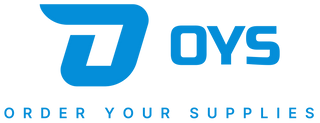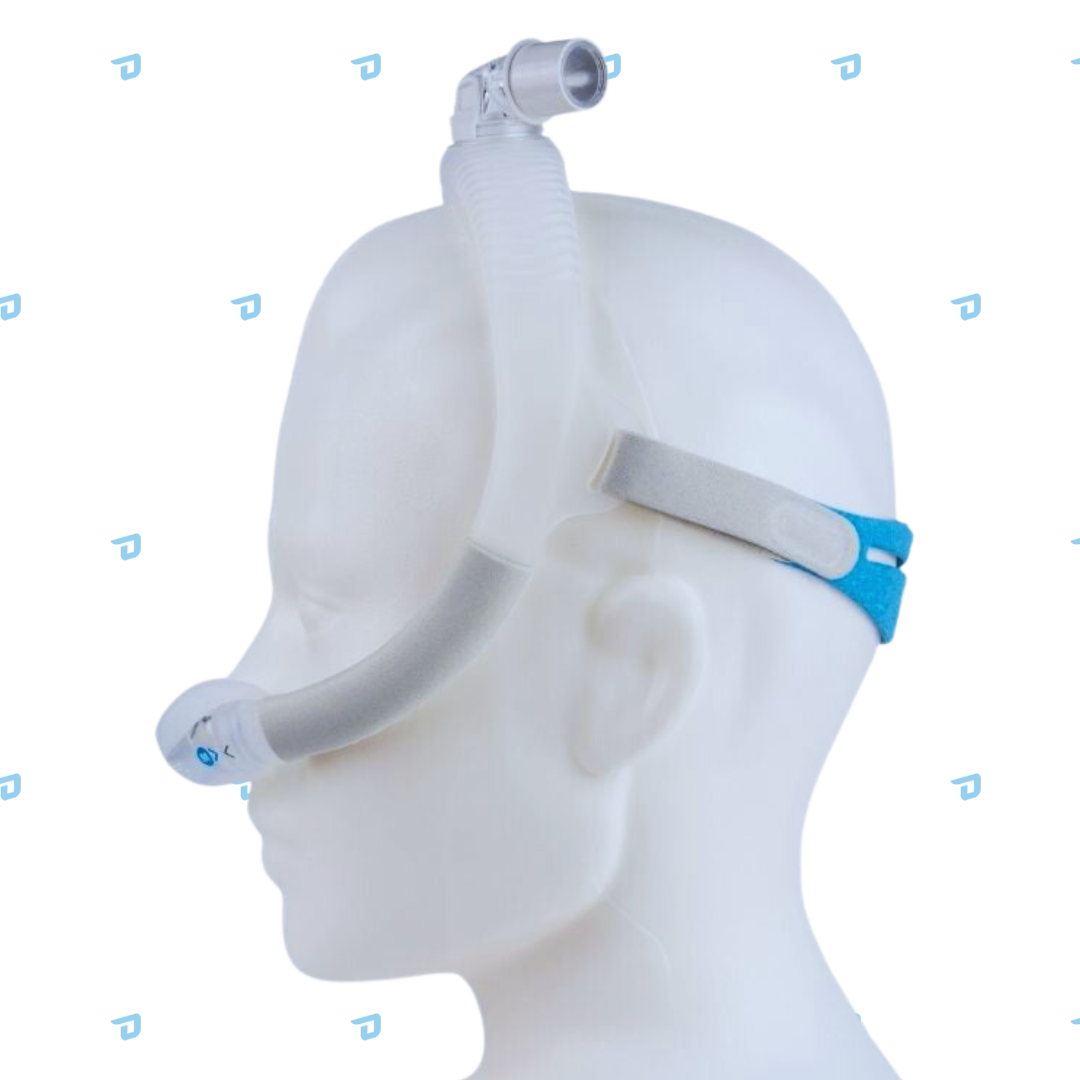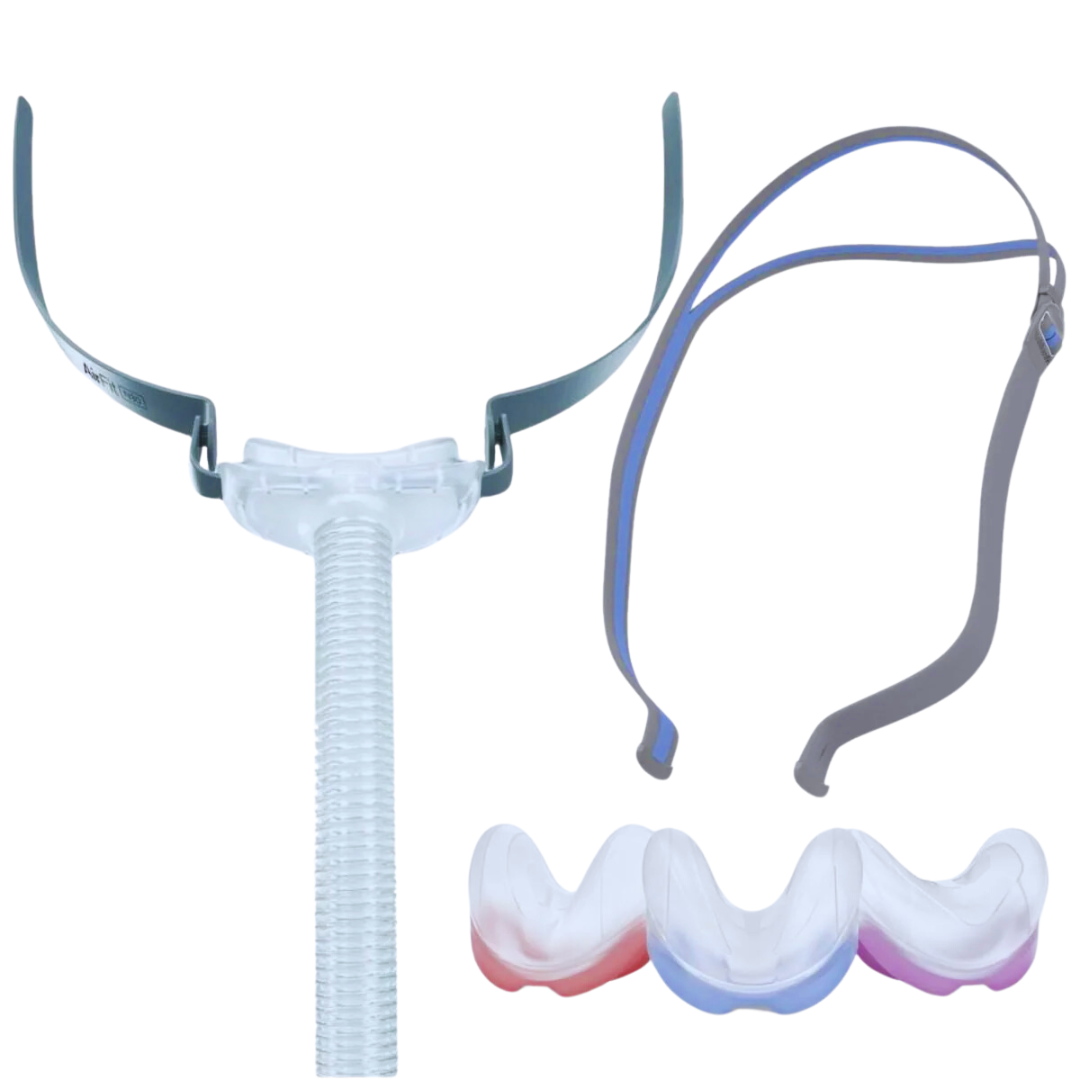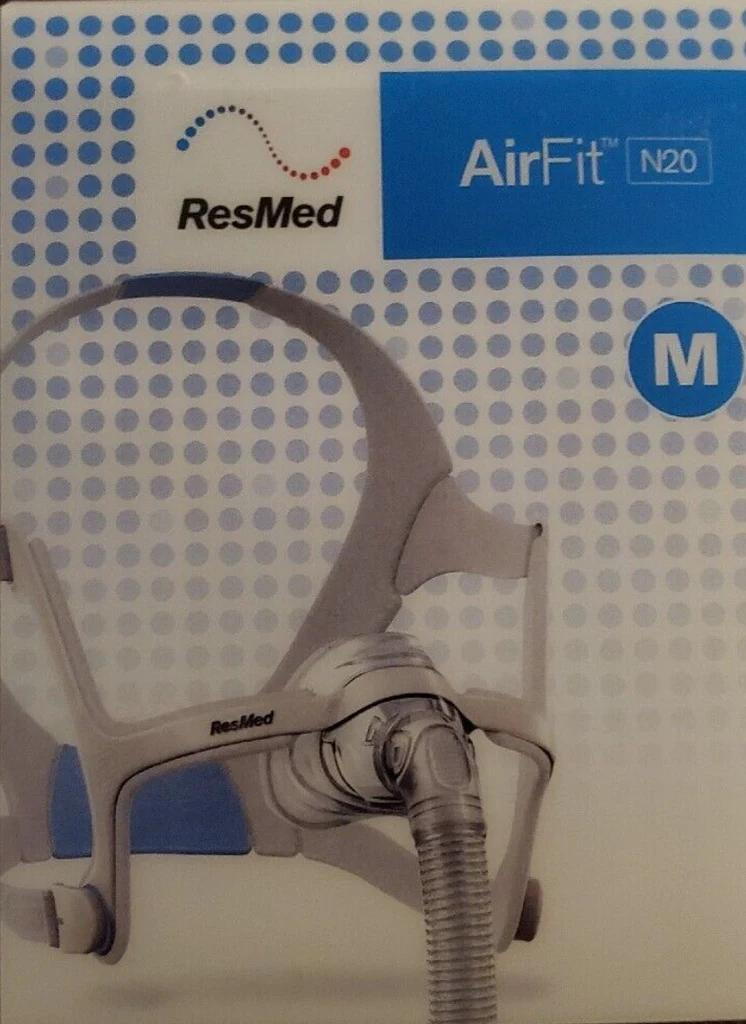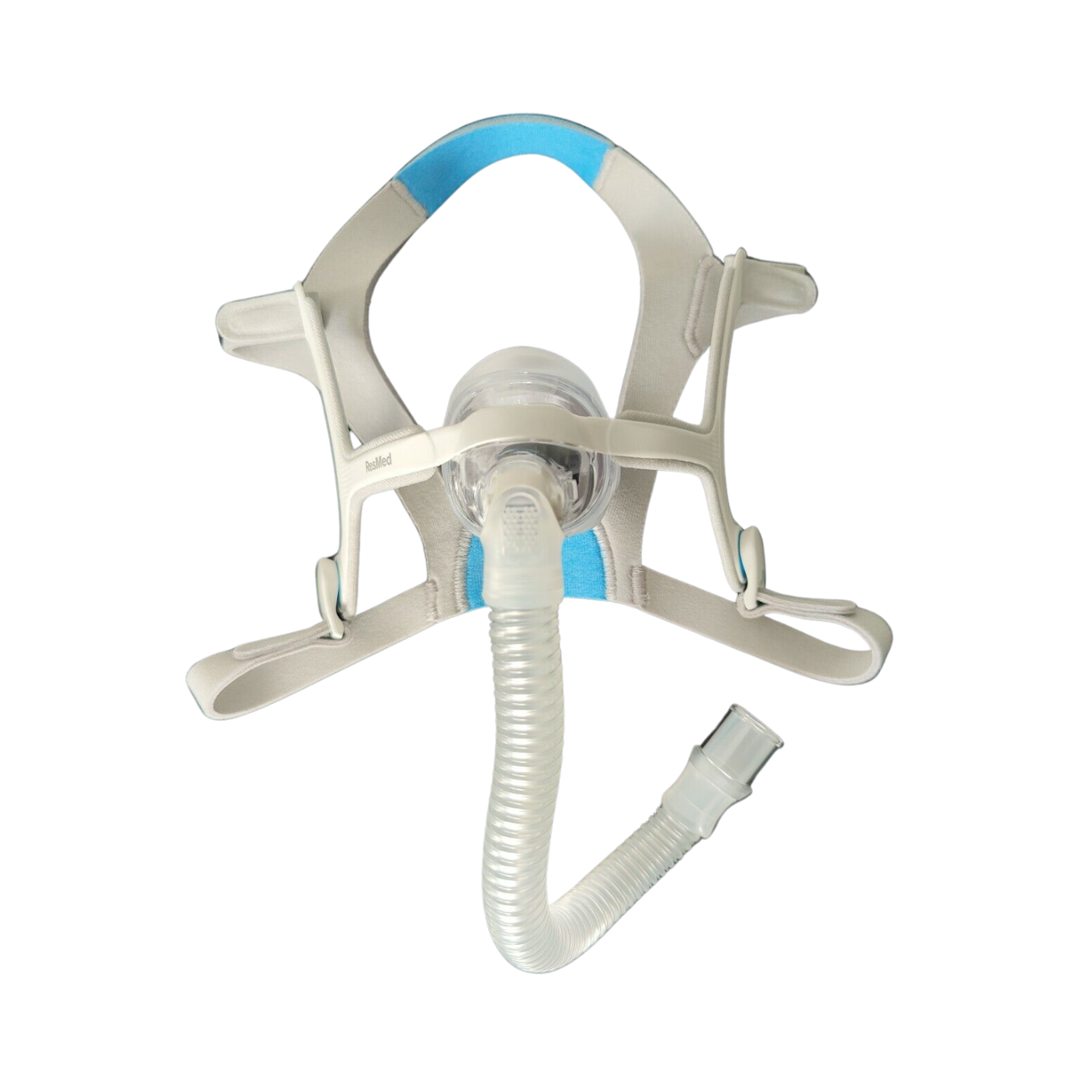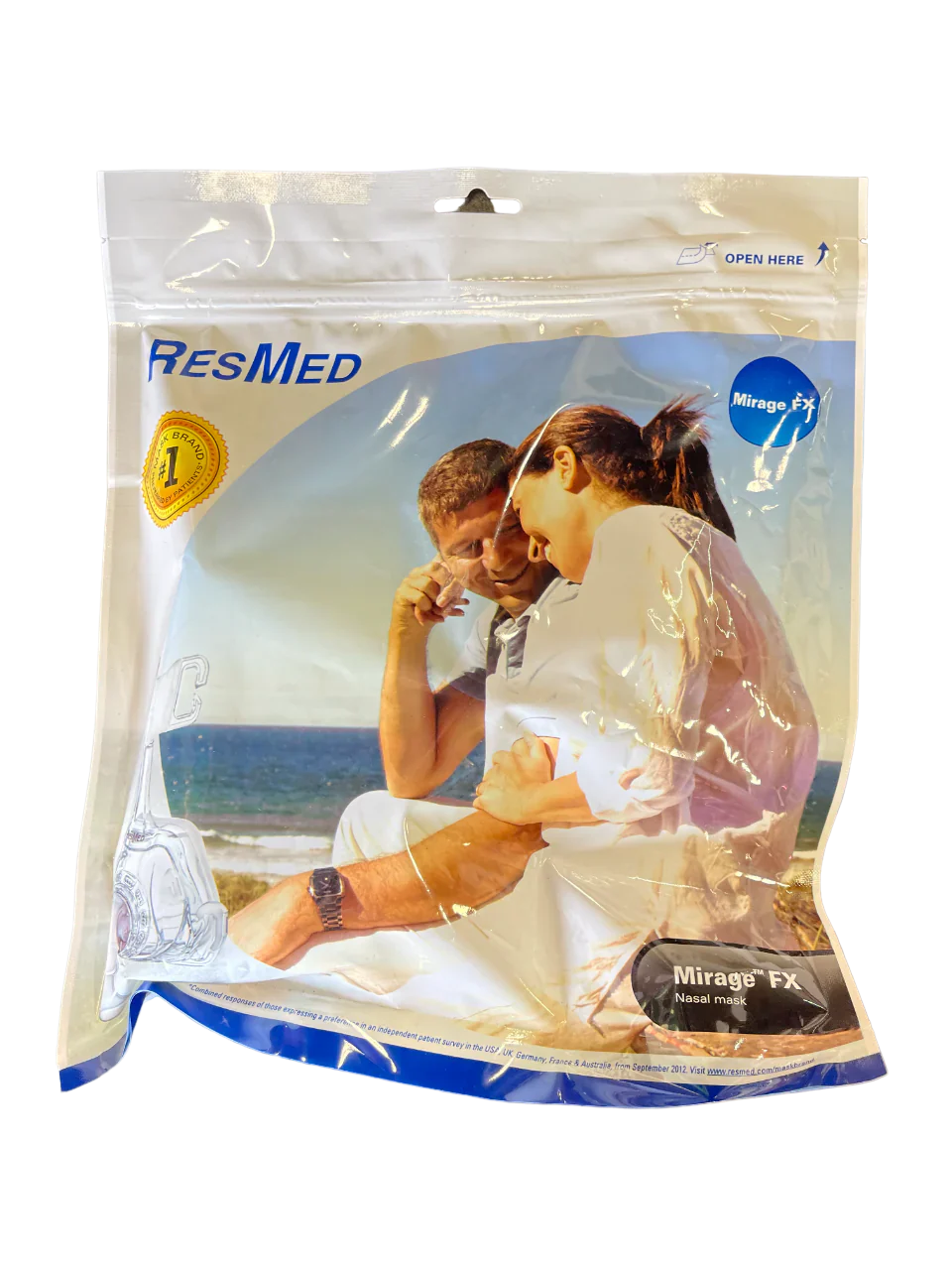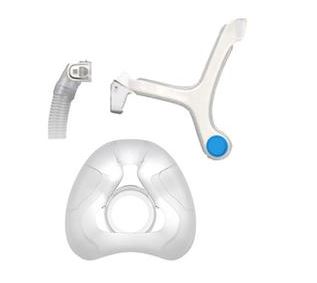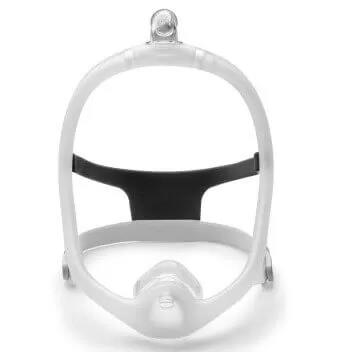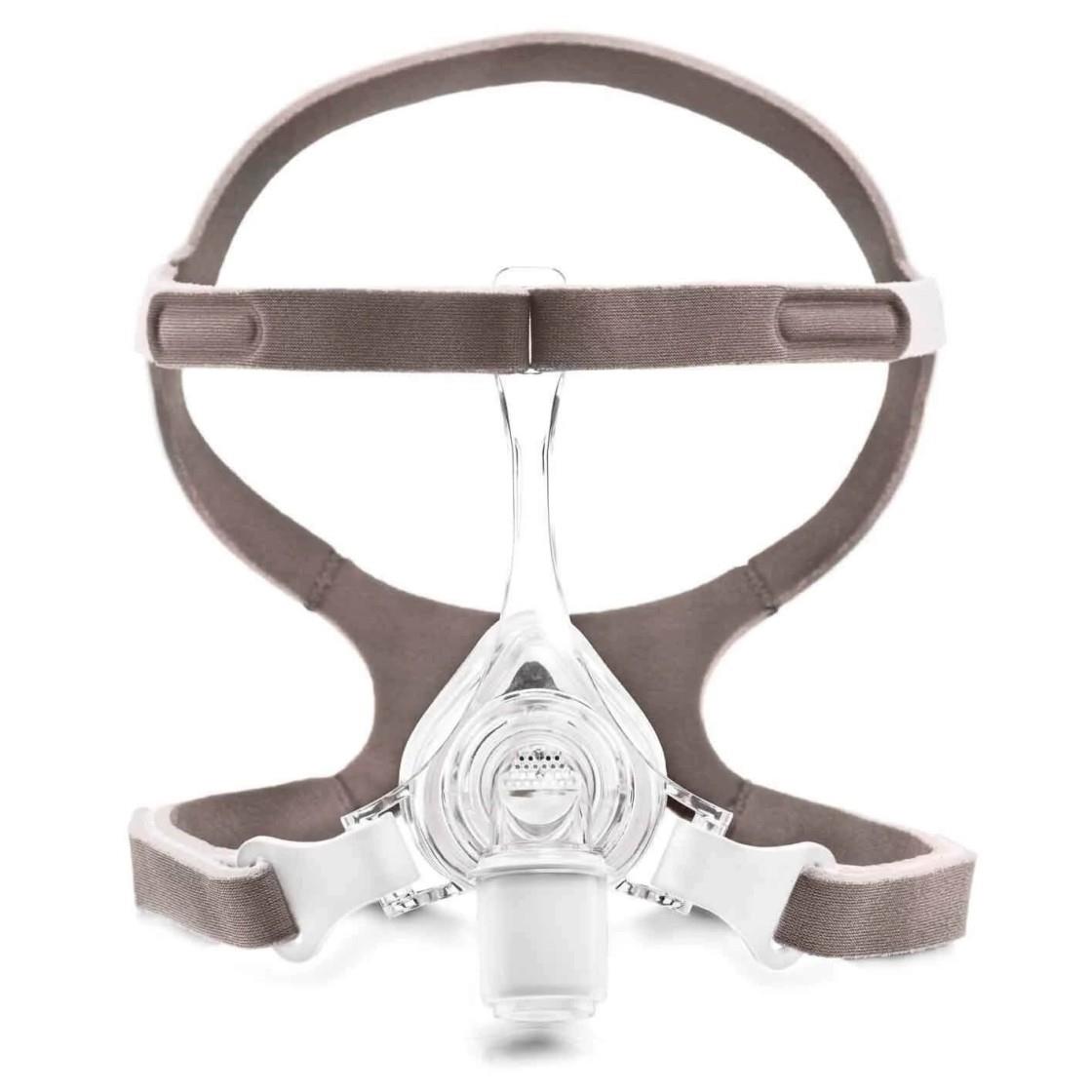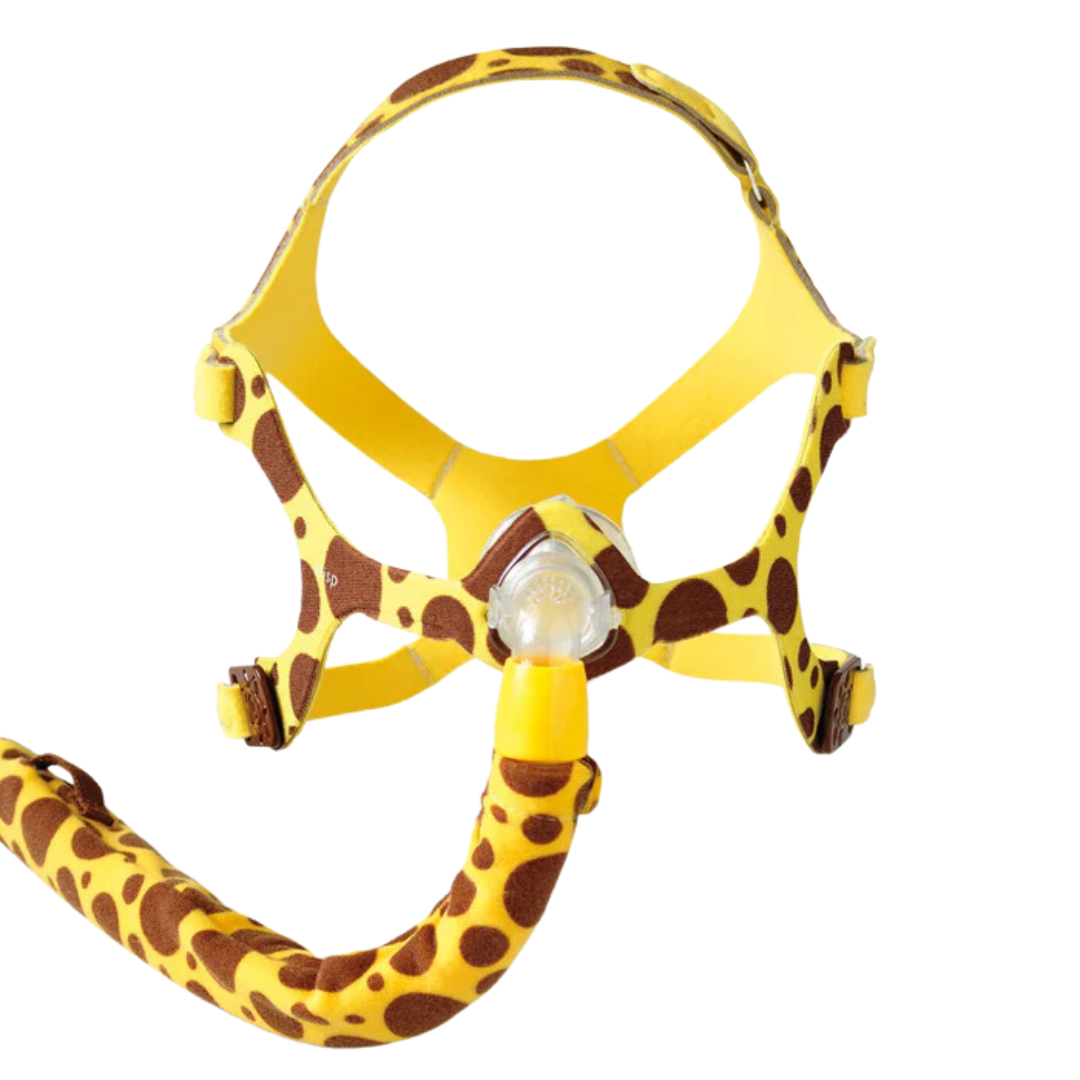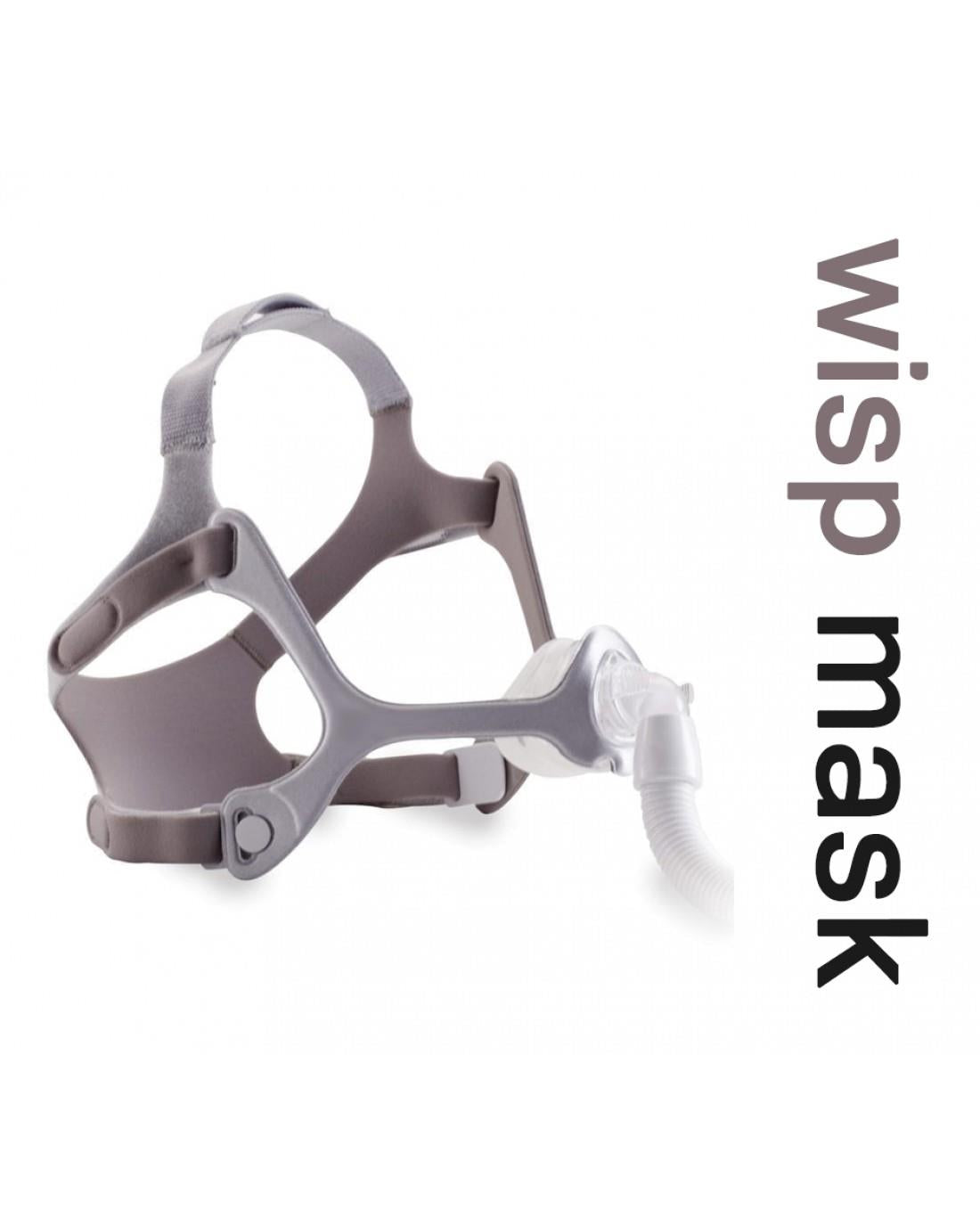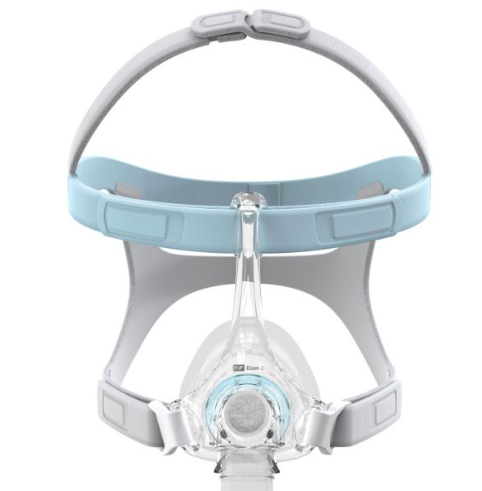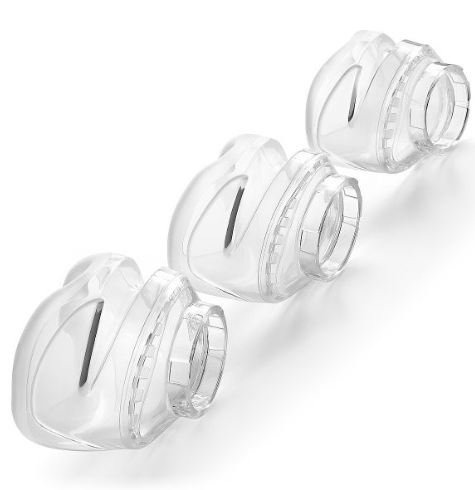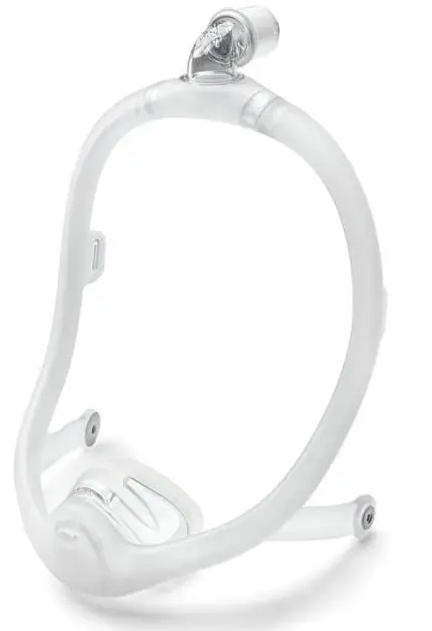Shop Our Top-Rated Nasal Masks For Restful Sleep
Nasal CPAP Masks
Experience comfort and reliability with our range of nasal CPAP masks. Designed to provide a streamlined and comfortable fit, these masks cover the entire nose or just the bottom half, delivering pressurized air into the nostrils for effective therapy. With a focus on comfort and effectiveness, our selection offers a variety of options to suit your individual needs.
Read MoreExplore Our Top-Rated Nasal CPAP Masks On Sale
Designed to provide a secure and comfortable fit, these nasal CPAP masks offer a reliable solution for a good night's sleep.
Why Choose CPAP Nasal Masks?
1. Comfortable Fit
Our nasal masks are engineered for optimal comfort. The lightweight design and soft, breathable materials make them ideal for extended wear, allowing you to experience uninterrupted sleep.
2. Minimalistic Design
Nasal masks cover only the nose, ensuring a clear line of sight, making them perfect for those who prefer a minimalistic approach to their sleep therapy.
3. Enhanced Seal Technology
Say goodbye to leaks and discomfort. Our nasal masks feature advanced seal technology to provide a secure and effective seal, ensuring that you receive the full benefits of CPAP therapy.
Different Types of CPAP Masks
Apart from the nasal CPAP mask, there are few other CPAP mask styles available. Following are the other types of CPAP masks:
1. Nasal Pillow Masks
CPAP nasal pillow masks are known for their minimalistic design, consisting of small cushions that seal around the nostrils, delivering pressurized air directly into the nasal passages. This design reduces facial contact, making it an excellent choice for individuals who feel claustrophobic with bulkier masks. The lightweight and compact nature of CPAP nasal pillow masks also makes them ideal for individuals who sleep on their sides or stomachs. However, they may not be suitable for those who require higher pressure settings or experience nasal congestion.
2. Full Face Masks
Full face masks encompass the nose and mouth, providing a secure seal that delivers pressurized air to both airways. This type of mask is recommended for individuals who breathe through their mouth during sleep or experience frequent congestion that may hinder nasal breathing. Full face CPAP masks are also beneficial for individuals with facial hair, as they accommodate variations in facial contours and provide reliable therapy delivery. However, some users may find them bulkier and less comfortable compared to nasal or nasal pillow masks.
3. Hybrid Masks
Hybrid masks combine elements of nasal pillows and full face masks, offering versatility and customization to suit individual preferences and needs. These masks feature nasal pillows for sealing around the nostrils and a mouthpiece or oral interface to accommodate mouth breathers. Hybrid masks are designed to provide a comfortable and effective seal, catering to individuals with diverse sleep patterns and breathing habits. While hybrid masks offer the benefits of both nasal and full face masks, they may require adjustment and experimentation to achieve optimal fit and comfort.
4. Oral Masks
Oral masks, also known as mouthpiece masks, focus on delivering pressurized air directly into the mouth, bypassing the nasal passages altogether. These masks are specifically designed for individuals who exclusively breathe through their mouth during sleep or experience nasal obstruction that impedes nasal breathing. Oral masks may feature soft silicone inserts or custom-fit mouthpieces to ensure a comfortable and secure fit, promoting effective therapy delivery and improved sleep quality for mouth-breathing individuals.
How Does a CPAP Nasal Mask Work?
A CPAP nasal mask works by delivering pressurized air directly into the nasal passages of individuals with sleep apnea. Here's how it operates:
- Sealing Around the Nose: The nasal mask is designed to fit securely over the nose, covering the nostrils while leaving the mouth uncovered. It features a cushion or seal that forms a snug fit against the skin to prevent air leaks during therapy.
- Connection to CPAP Machine: The nasal mask is connected to a CPAP machine via a flexible tube. The machine generates a continuous flow of air at a prescribed pressure determined by a healthcare provider based on the individual's needs.
- Delivery of Pressurized Air: When the CPAP machine is activated, pressurized air is delivered through the tube and into the nasal mask. The mask channels the air directly into the nasal passages, creating a positive airway pressure that helps keep the airway open during sleep.
- Maintaining Airway Patency: By delivering a steady stream of pressurized air, the nasal mask prevents the collapse of the upper airway, which is characteristic of obstructive sleep apnea. This continuous airflow promotes uninterrupted breathing throughout the night, reducing or eliminating apnea episodes and improving oxygenation.
- Enhancing Sleep Quality: By effectively treating sleep apnea, the CPAP nasal mask helps individuals experience more restful and rejuvenating sleep. It reduces symptoms such as snoring, daytime fatigue, and morning headaches, leading to improved overall sleep quality and daytime functioning.
Overall, a CPAP nasal mask plays a vital role in the management of sleep apnea by ensuring the delivery of continuous positive airway pressure to keep the airway open and facilitate uninterrupted breathing during sleep.
How to Choose the Right Nasal CPAP Mask?
Selecting the correct nasal CPAP mask is crucial for effective sleep therapy. Here's a guide to help you make an informed decision:
- Consider Your Sleeping Style: If you move a lot during sleep, a mask with a secure fit and minimal leaks, like a nasal mask with top-of-head tubing, might be suitable. For those who prefer an open field of vision, masks with under-the-nose designs or minimalistic frames offer greater visibility.
- Evaluate Comfort Features: Opt for masks with innovative cushion technologies, such as InfinitySeal or cradle cushions, to ensure a comfortable and secure seal. Lightweight frames made from soft, flexible materials reduce facial pressure and enhance overall comfort.
- Review Ventilation and Noise Levels: Masks with QuietAir or QuietVent technology disperse exhaled air quietly, minimizing noise disruptions for you and your bed partner. Check for features that reduce air leaks, contributing to a quieter and more effective CPAP therapy.
- Size Matters: Choose a mask that offers multiple cushion sizes. Proper sizing is crucial for a personalized fit that accommodates diverse facial structures.
- Freedom of Movement: Masks with features like top-of-head tubing or over-the-head connections provide freedom of movement, catering to different sleeping positions.
- Consider Headgear Preferences: Some users prefer masks without headgear for a more natural feel and increased freedom. Evaluate if this suits your sleeping preferences.
- Ease of Maintenance: Masks with components that are easy to disassemble and clean contribute to a hassle-free maintenance routine.
- Check Compatibility: Ensure the mask is compatible with your specific CPAP machine model, providing versatility and ease of use.
- Read User Reviews: Before making a final decision, consider reading user reviews to gather insights into real-world experiences and preferences.
Consult with a Healthcare Professional
For personalized advice, consult with your healthcare provider or a CPAP specialist. They can provide guidance based on your individual sleep therapy needs. Consider these factors in order to purchase the best CPAP mask for your needs and requirements. Nasal masks are best for active sleepers. Many manufacturers offer advanced nasal masks that provide maximum comfort and suit all your needs and requirements, thus turning out to be one of the best CPAP masks for sleep apnea.
Explore Our Popular CPAP Masks Today
Why Choose Order Your Supplies for Your Nasal CPAP Mask?
At Order Your Supplies, we understand the importance of a restful night's sleep and optimal CPAP therapy. That's why we offer a curated selection of high-quality nasal masks, along with exceptional service to ensure you get the best possible experience:
- Expertly Selected Products: We carefully choose masks from trusted brands known for their comfort, effectiveness, and innovative features.
- Fit Guidance & Support: Our knowledgeable customer service team is available to answer your questions, guide you through the fitting process, and help you find the perfect mask for your individual needs.
- Exceptional Value: We offer competitive pricing and frequent promotions, ensuring you get the best value for your investment.
- Hassle-Free Shopping: Enjoy convenient online ordering, fast and reliable shipping.
- Committed to Your Sleep: We understand the impact of sleep apnea, and we're dedicated to helping you find solutions that improve your sleep quality and overall well-being.
Choose Order Your Supplies – your trusted partner for a better night's sleep with quality nasal CPAP masks.
FAQs
- Improved Sleep Quality: Nasal masks promote effective CPAP therapy, reducing sleep apnea symptoms and improving overall sleep quality.
- Comfortable Design: The masks are designed for comfort, with features like soft cushions and lightweight frames to enhance the user's experience.
- Reduced Disruptions: Nasal masks help minimize air leaks and noise disruptions, ensuring a more peaceful sleep environment for both the user and their bed partner.
- Personalized Fit: The availability of multiple cushion sizes allows users to find the optimal fit, accommodating various facial structures.
Nasal CPAP masks should be cleaned regularly to maintain their effectiveness and hygiene. Here's a general guideline:
- Daily Cleaning: After each use, wipe down or wash your cushion in mild soap and water before letting it air dry . This is because your skin releases oils that can reduce the quality and performance of your seal and mask . It's also important to clean your headgear daily by wiping it down with a wet cloth.
- Weekly Cleaning: Once a week, disassemble your mask by separating the headgear, mask cushion, nasal pillows, frame, and elbow. Gently wash your mask parts in mild soap and water . Your mask and tubing need a full bath at least once a week to keep it free of dust, bacteria, and germs .
- Monthly Cleaning: The rest of the mask can be cleaned once a month or so .
Our committed team is available to support you through every step of your treatment journey.


